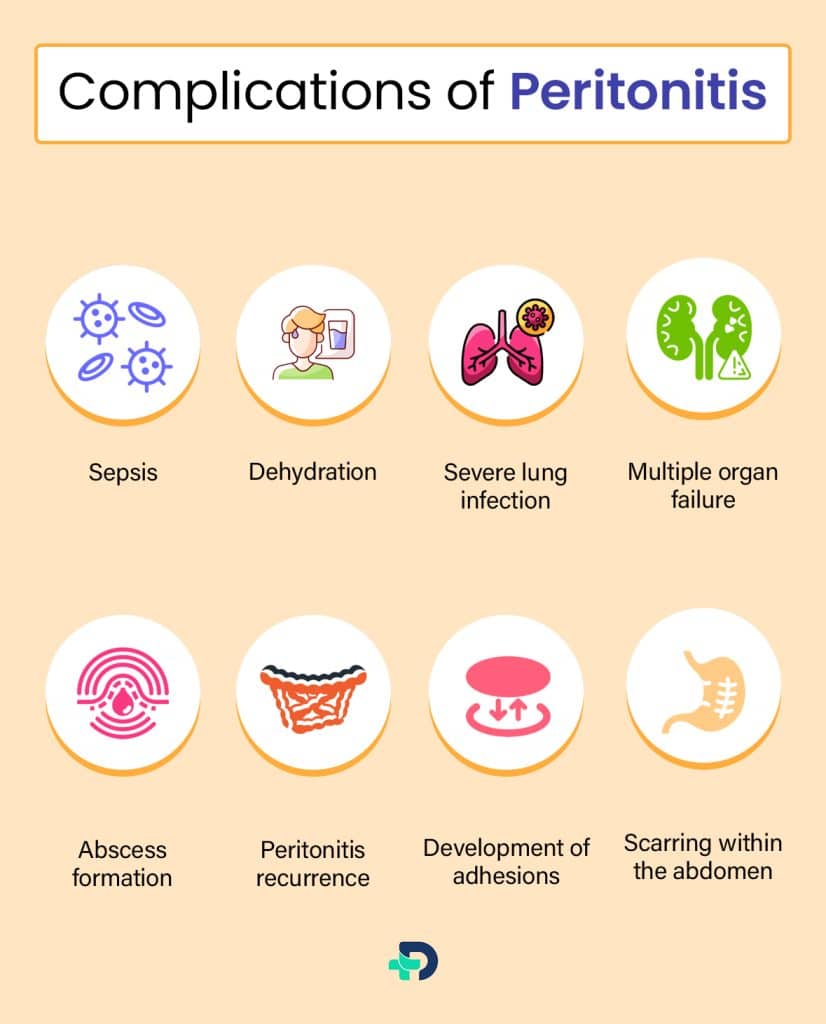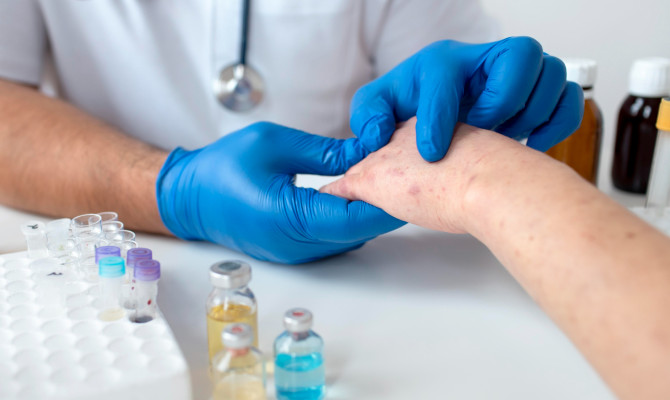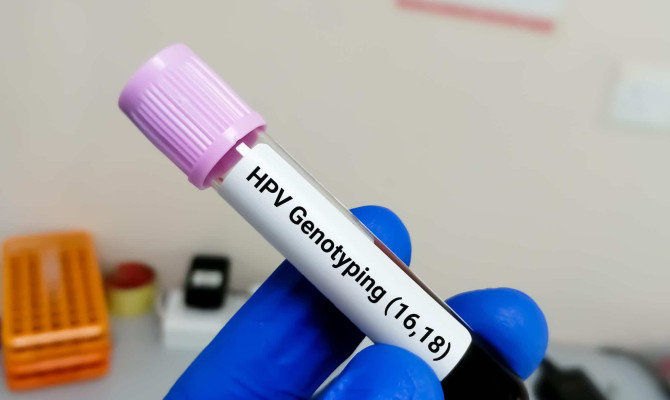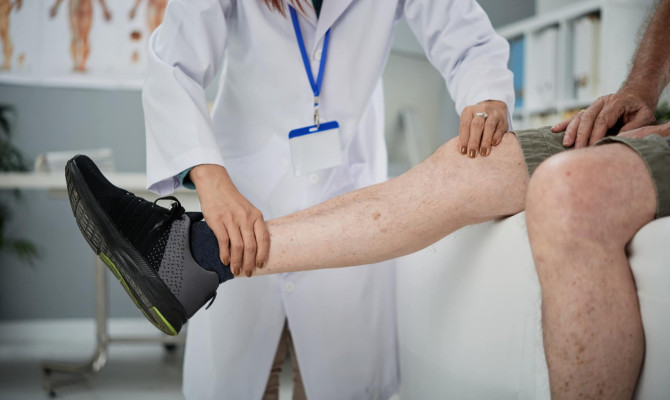What is Peritonitis: Types, Symptoms, Causes and Treatment

- Peritonitis
- 22 Aug 2023
Overview
What is Peritonitis?
Peritonitis is a serious medical condition characterized by inflammation of the peritoneum, the thin tissue lining the inner wall of the abdomen and covering the abdominal organs. It is generally caused by infection, and the pain associated with it may aggravate when an individual move. This is a potentially fatal disorder that necessitates prompt medical intervention.
The causes of peritonitis, its symptoms, diagnosis, prognosis, treatment, and prevention are all covered in this article.

Symptoms
Peritonitis symptoms
Peritonitis symptoms might differ depending on what’s causing it and the degree of the illness. Common symptoms may include:
- Severe abdomen pain
- Abdominal tenderness
- Vomiting and Nausea
- Changes in bowel movements
- Fever and chills
Severe abdominal pain
- Intense, constant pain in the abdomen is a hallmark symptom of peritonitis.
- Touch or movement may make the pain worse.1Symptoms| Researched based study from Hopkinsmedicine.org
Abdominal tenderness
- The abdomen may be tender to the touch, and a healthcare provider may feel rigidity or guarding of the abdominal muscles during a physical examination.
Nausea and vomiting
- Individuals with peritonitis often experience persistent nausea and vomiting.
Bowel changes
- like constipation or diarrhea, might be brought on by peritonitis.
Fever and chills
- Chills and a raised body temperature could be signs of an infection.
Other symptoms of peritonitis may include
- Appetite loss
- Reduced urine
- Unable to fart
- Bloating 2Symptoms| Researched based study from Medlineplus.gov
- Fatigue
- Confusion
- Shortness of breath
- Easy bruising
- Fast heartbeat
- Swollen feet
Types
Types of Peritonitis
The two main types of peritonitis may include:
- Spontaneous type
- Secondary type
Spontaneous bacterial peritonitis (SBP)
- It is a severe infection caused by an abnormal collection of fluids in the abdomen that has no apparent source.3Types| Researched based study from Nlm.nih.gov
- Mainly caused by a bacterial infection that can affect people with kidney or liver disease, such as cirrhosis.
Secondary peritonitis
- Other medical disorders generally cause this type of peritonitis.4Types| Researched based study from Nlm.nih.gov
- Primarily because of a rupture (a hole) within one of the abdominal organs.
Causes
Causes of Peritonitis
Peritonitis commonly occurs when bacteria or fungus enter the peritoneum, resulting in infection and inflammation.
The following are some of the common causes of peritonitis:
- Perforated appendicitis – Peritonitis can result from the appendix rupture or puncture, allowing microorganisms into the peritoneal cavity.
- Perforated peptic ulcer – Bacteria may reach the abdominal cavity when a peptic ulcer, especially in the stomach or duodenum, erodes through the wall.
- Pancreatitis – Peritonitis may result from bacteria spreading outside the pancreas in persons with pancreatic inflammation and infection.
- Diverticulitis – If the diverticula (tiny pouches that form in the colon) becomes inflamed or infected, it may lead to peritonitis.
- Abdominal trauma – If the peritoneum is torn, trauma to the abdomen, such as one from a road traffic accident or a probing wound, can result in peritonitis.
- Peritoneal dialysis – is a procedure for treating kidney failure that uses the peritoneum as a filter and can occasionally result in the complication of peritonitis.
Rarely it can also occur from
- Using feeding tubes
- Colonoscopy to examine the colon and rectum
- Digestive surgery
- Removing fluid from the abdomen in ascites
- Endoscopy to check the digestive tract
Risk
People at risk
Certain factors increase the risk of developing peritonitis, including:
- Weakened immune system – People who have compromised immune systems, such as the ones with HIV/AIDS, cancer patients, or those using immunosuppressive drugs, are more prone to infections that might cause peritonitis.
- Abdominal Surgery – Any surgical procedure involving the abdomen can potentially lead to peritonitis if a breach in the peritoneum or an infection occurs.
- Chronic Liver Disease – Conditions like cirrhosis or hepatitis can weaken the liver, increasing the risk of infection and subsequent peritonitis.
- Peritonitis in the past – people with a history of peritonitis have higher chances of having it again than those who never had it before.
- Certain conditions – An individual’s chance of developing peritonitis may be increased by illnesses like appendicitis, stomach ulcers, Crohn’s disease, pancreatitis, and diverticulitis.5Risk| Researched based study from Mayoclinic.org
Diagnosis
Diagnosis of Peritonitis
Prompt diagnosis of peritonitis is crucial for effective treatment. The following diagnostic tests are commonly employed:
- Physical Examination – the doctor will look at the patient’s medical background, perform a physical exam, and examine symptoms including soreness and pain in the abdomen.
- Blood tests – such as a CBC (complete blood count) and culture of the blood, can detect the presence of illness and the causing organism.
- Imaging Studies – To see the abdominal region, locate the infection’s source, and determine the severity of inflammation or any perforations, imaging studies like X-rays, ultrasounds, or CT scans (computed tomography) may be utilized.
- Peritoneal Fluid Analysis – If peritonitis is suspected, a sample of fluid from the peritoneal cavity may be collected through the paracentesis. The fluid can be analyzed to identify the presence of infection, determine the type of bacteria or fungi causing the infection, and guide appropriate treatment.6Diagnosis| Researched based study from Clevelandclinic.org
Treatment
Peritonitis treatment
The primary goals of treatment are to control the infection, remove any source of contamination, and support the patient’s overall health.
The following approaches may be employed:
- Intravenous Antibiotics – Broad-spectrum antibiotics are administered intravenously to combat the infection. Once the causative organism is identified, antibiotics may be adjusted accordingly7Treatment| Researched based study from Healthdirect.gov
- Intravenous fluids – are given to hydrate the body and replenish all the lost electrolytes.
- Surgical Intervention – In cases where an abdominal perforation or source of infection is identified, surgery is often necessary to repair the damage, drain any abscesses or infected fluid, and remove any necrotic or damaged tissue.8Treatment| Researched based study from Betterhealth.vic.gov.au
- Supportive Care – Patients with peritonitis may require supportive care, including intravenous fluids for hydration, pain management, and nutritional support.
Prevention
Peritonitis Prevention
Even while it might not always be possible to prevent peritonitis, certain precautions might help lower the risk and may include:
- Exercise good hygiene – by regularly washing your hands with water and soap, especially before handling any food and after using the restroom. This lessens the chance of infection.
- Promptly Treat Abdominal Infections – Seek medical attention promptly if you develop symptoms of an abdominal infection, such as appendicitis or diverticulitis. Timely treatment can prevent the progression of peritonitis.
- Follow Medical Advice – To lessen the risk of peritonitis if you are receiving peritoneal dialysis, observe strict aseptic procedures and pay attention to your doctor’s recommendations.5Prevention| Researched based study from Mayoclinic.org
Complications

Complications of peritonitis
Untreated or spreading peritonitis is a dangerous illness that can result in problems. Some potential complications include the following:
- Sepsis
- Dehydration
- Severe lung infection 9Complications| Researched based study from Mountsinai.org
- Multiple organ failure 10Complications| Researched based study from Nlm.nih.gov
- Abscess formation
- Peritonitis recurrence – tertiary peritonitis
- Development of adhesions
- Scarring within the abdomen
Prognosis
Prognosis of Peritonitis
A potentially fatal disorder known as peritoneal inflammation is called peritonitis. The underlying cause, promptness of diagnosis, efficacy of treatment, and overall health of the patient are some of the factors that decide the prognosis of peritonitis. Results can be improved with early intervention and the right kind of care. However, the prognosis may be more guarded if peritonitis is severe or complications arise.
Any feedback on this article?
 This Articles content was accurate
This Articles content was accurate Very Informative Article
Very Informative Article I have a question or a comment
I have a question or a comment
 This article contains inaccurate content
This article contains inaccurate content This article was not helpful
This article was not helpful I have a question or a comment
I have a question or a comment
We appreciate your helpful feedback!
Checkout our social pages
References
-
John Hopkins Medicine
Peritonitis | Symptoms
-
Medline Plus
Peritonitis | Symptoms
-
National Library of Medicine
Spontaneous Bacterial Peritonitis | Types
-
National Library of Medicine
Management of secondary peritonitis | Types
-
Mayo Clinic
Peritonitis | Causes
-
Cleveland Clinic
Peritonitis | Diagnosis
-
Health Direct
Peritonitis | Treatment
-
Better Health Channel
Peritonitis | Treatment
-
Mount sinai
Peritonitis | Complications
-
National Library of Medicine
Causes of Acute Peritonitis and Its Complication | Complications






































